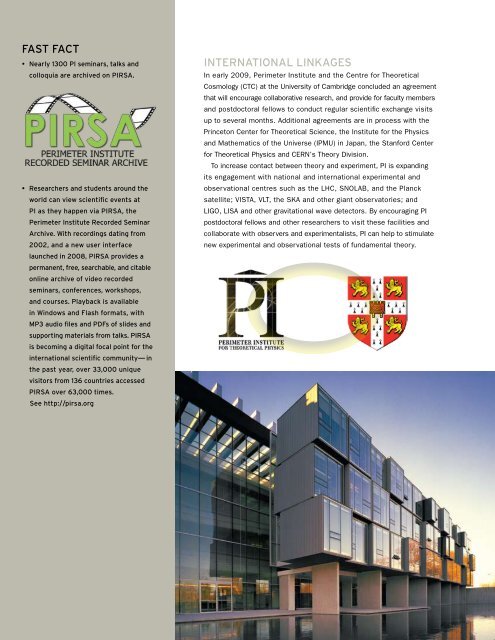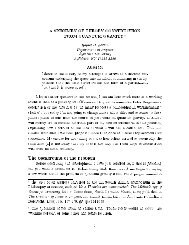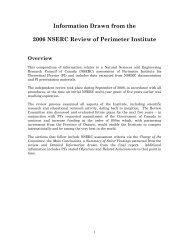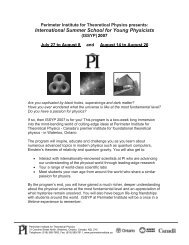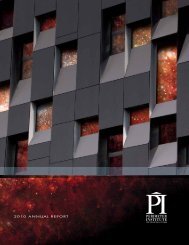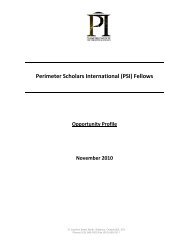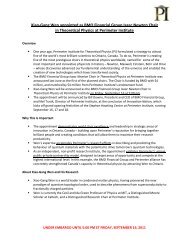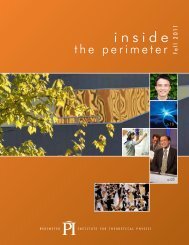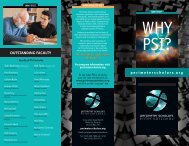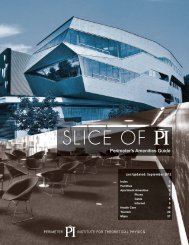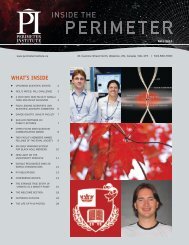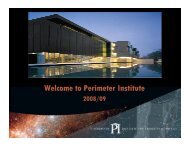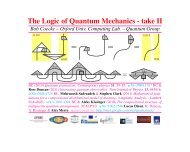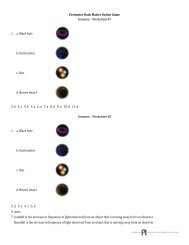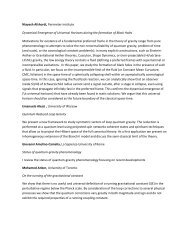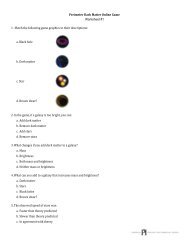2009 Annual Report - Perimeter Institute
2009 Annual Report - Perimeter Institute
2009 Annual Report - Perimeter Institute
Create successful ePaper yourself
Turn your PDF publications into a flip-book with our unique Google optimized e-Paper software.
Fast Fact<br />
• Nearly 1300 PI seminars, talks and<br />
colloquia are archived on PIRSA.<br />
• Researchers and students around the<br />
world can view scientific events at<br />
PI as they happen via PIRSA, the<br />
<strong>Perimeter</strong> <strong>Institute</strong> Recorded Seminar<br />
Archive. With recordings dating from<br />
2002, and a new user interface<br />
launched in 2008, PIRSA provides a<br />
permanent, free, searchable, and citable<br />
online archive of video recorded<br />
seminars, conferences, workshops,<br />
and courses. Playback is available<br />
in Windows and Flash formats, with<br />
MP3 audio files and PDFs of slides and<br />
supporting materials from talks. PIRSA<br />
is becoming a digital focal point for the<br />
international scientific community— in<br />
the past year, over 33,000 unique<br />
visitors from 136 countries accessed<br />
PIRSA over 63,000 times.<br />
See http://pirsa.org<br />
interNational linkages<br />
In early <strong>2009</strong>, <strong>Perimeter</strong> <strong>Institute</strong> and the Centre for Theoretical<br />
Cosmology (CTC) at the University of Cambridge concluded an agreement<br />
that will encourage collaborative research, and provide for faculty members<br />
and postdoctoral fellows to conduct regular scientific exchange visits<br />
up to several months. Additional agreements are in process with the<br />
Princeton Center for Theoretical Science, the <strong>Institute</strong> for the Physics<br />
and Mathematics of the Universe (IPMU) in Japan, the Stanford Center<br />
for Theoretical Physics and CERN’s Theory Division.<br />
To increase contact between theory and experiment, PI is expanding<br />
its engagement with national and international experimental and<br />
observational centres such as the LHC, SNOLAB, and the Planck<br />
satellite; VISTA, VLT, the SKA and other giant observatories; and<br />
LIGO, LISA and other gravitational wave detectors. By encouraging PI<br />
postdoctoral fellows and other researchers to visit these facilities and<br />
collaborate with observers and experimentalists, PI can help to stimulate<br />
new experimental and observational tests of fundamental theory.


